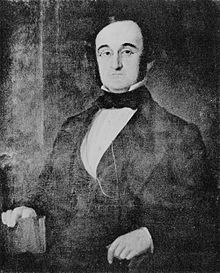Benjamin F. Perry
| Benjamin Franklin Perry | |
|---|---|
 |
|
| 72nd Governor of South Carolina | |
|
In office June 30, 1865 – November 29, 1865 |
|
| Appointed by | Andrew Johnson |
| Lieutenant | None |
| Preceded by | Andrew Gordon Magrath |
| Succeeded by | James Lawrence Orr |
| Judge of the Confederate States District Court for the District of South Carolina | |
|
In office February 1, 1865 – May 5, 1865 |
|
| Appointed by | Jefferson Davis |
| Preceded by | Andrew Gordon Magrath |
| Succeeded by | Position abolished |
| Member of the South Carolina House of Representatives from Greenville District | |
|
In office November 24, 1862 – February 1, 1865 |
|
|
In office November 26, 1849 – November 26, 1860 |
|
|
In office November 28, 1836 – November 28, 1842 |
|
| Member of the South Carolina Senate from Greenville District | |
|
In office November 25, 1844 – November 27, 1848 |
|
| Preceded by | Henry Gaines Johnston |
| Succeeded by | Thomas Edwin Ware |
| Personal details | |
| Born |
November 20, 1805 Pickens District, South Carolina |
| Died | December 3, 1886 (aged 81) Greenville, South Carolina |
| Political party | Democratic |
Benjamin Franklin Perry (November 20, 1805 – December 3, 1886) was the 72nd Governor of South Carolina, appointed by President Andrew Johnson in 1865 after the end of the American Civil War.
Perry was born in Pickens District and educated at preparatory schools in Asheville, North Carolina. He was admitted to the South Carolina bar in 1827, but pursued journalism and became the editor of the Greenville Mountaineer in 1832. The paper was adamantly against nullification and Perry was able to parlay his influence by being elected as a delegate to both the Union Convention and the Nullification Convention. Turner Bynum, who was editor of the pro-Calhoun Greenville Sentinel newspaper, met Perry in a duel. The duel was staged on an island in the Tugaloo River near Hatton's Ford on August 17, 1832. Perry fatally wounded Bynum who died that night.
In 1836, Perry was elected to the South Carolina House of Representatives and served for six years until 1842, he had lost to Warren R. Davis in 1834. He gained election to the South Carolina Senate in 1844, but returned to the House of Representatives in 1849 and remained a member until 1860. As the secession movement was sweeping the state in the years prior to the Civil War, Perry founded The Southern Patriot in 1851 to counter and spread a unionist message. Even though Perry was adamantly against secession, he embraced the state when it did secede and rallied the residents in the Upstate in favor of the Confederate cause. He was again elected to the House of Representatives in 1862 and served until being appointed as a Confederate States District Judge in 1864.
...
Wikipedia
